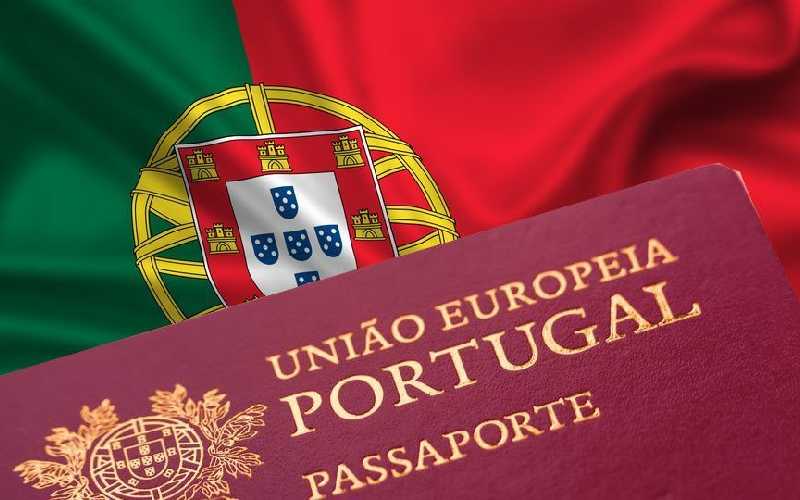The Portugal D7 visa allows temporary residence permits for retirees or those with a passive income to live in Portugal. If you’re considering retiring in Portugal, or just want to live there for an extended period of time on a passive income (such as income from property), this article is definitely something you’ll want to read. It’s suitable for pensioners coming from outside of the EU who want to retire in Portugal and have income in their pension over €1000 a month.
What are the Requirements for the Portugal D7 Visa?
The first thing we’ll talk about is whether or not this article applies to you at all. The requirements to get this visa are very strict, and it’s only available to pensioners or entrepreneurs who have a successfully created passive income business in their home country, and who want to live off that income in Portugal. The key here is that you must be the founder of the business.
To make sure this applies to you, ask yourself if you are the founder of your own business (if yes, proceed), or if you just work for a company (if no, ignore this article). This D7 visa is usually suitable for people with a passive income (for example previous pensions, websites or property) and also for pensioners retiring in Portugal with a certain amount of pension for retirement.
You will have to pay an application fee of €650 to apply for this visa. You will have to pay €700 for the visa itself, and there is also a €3,000 non-refundable risk fee. If you’re thinking that’s a lot of money to spend on just one visa, I completely understand. That said, if you save money every month and have a positive cash flow coming in (i.e. any income), then this Visa will definitely be an investment for you over the long term.
How much does it cost to get a Portugal D7 Visa?
The next thing we’ll talk about is how long the Portugal D7 Visa lasts for you. Your Portugal D7 Visa can be valid anywhere from 1 year up to 5 years (for applications approved within 6 months). This is a huge range of potential visas that you can choose from. The results are completely up to you, I’ll explain why later on in the article.
Finally, what are the other requirements that are involved in getting a Portugal D7 Visa. There are no physical requirements (i.e. no physical visit to Portugal required), but there are financial ones which will require you to either prove your savings/financial status (with specific bank statements) or have a signed offer from a Portuguese bank (which must be the source of your income). You will also make an informed decision about whether or not to declare family members living with you in Portugal when applying for this visa as well.
How to apply for the Portugal D7 Visa
You submit your application online through the Portuguese consulate’s website (the same website). When you submit your application, you will have to follow a series of steps that take you from “have no idea what I’m doing” to “be working in Portugal in 4 months”. There are over 70 steps in total, and I walk through them all step by step for you here. At the end of this article, there is also a summary table with links to everything that you’ll need when applying for this visa.
Is the D7 Visa Residency?
Note that the listing above is for the Portugal D7 Visa, and not for the Portugal Permanent Residency Permit. There is a big difference between the two. The D7 can be renewed as long as you want, but it’s not permanent residency in itself. It does, however, allow you to apply for residency status.
Portugal D7 Visa Pros
Here are some of the pros of Portugal D7 Visa:
Can be renewed as long as you want. This means you will only have to apply every two years for a Portugal D7 Visa, and not every year. If your life gets harder or if your business starts making more money, then you can easily get this visa renewed. No need to worry about Brexit or anything like that. It’s a permanent residence permit for those with enough income – it won’t disappear when Britain leaves the EU.
This means you will only have to apply every 2 years for a Portugal D7 Visa, and not every year. If your life gets harder or if your business starts making more money, then you can easily get this visa renewed. No need to worry about Brexit or anything like that. It’s a permanent residence permit for entrepreneurs – it won’t disappear when Britain leaves the EU. Saves money over the long term.
There are fewer requirements than other Portuguese visas, and this saves you money in the future. You can apply for this visa at any consulate in the world. This is a huge benefit for the people who live outside Portugal. You can apply for this visa at any Portuguese consulate in the world without ever having to come to Portugal or even leaving your home country.
If you are not receiving a pension or getting a passive income to spend in Portugal, but you have a business idea, then you are probably going to consider the D2 visa which is the ‘entrepreneur visa’. This is a good option for digital nomads who run their own business online (e.g. design, web development or coaching) and want that business to be based in Portugal.
If you enjoyed this article you might also like to read about Golden Visa Portugal and The D2 Visa



10 thoughts on “Portugal D7 Visa”